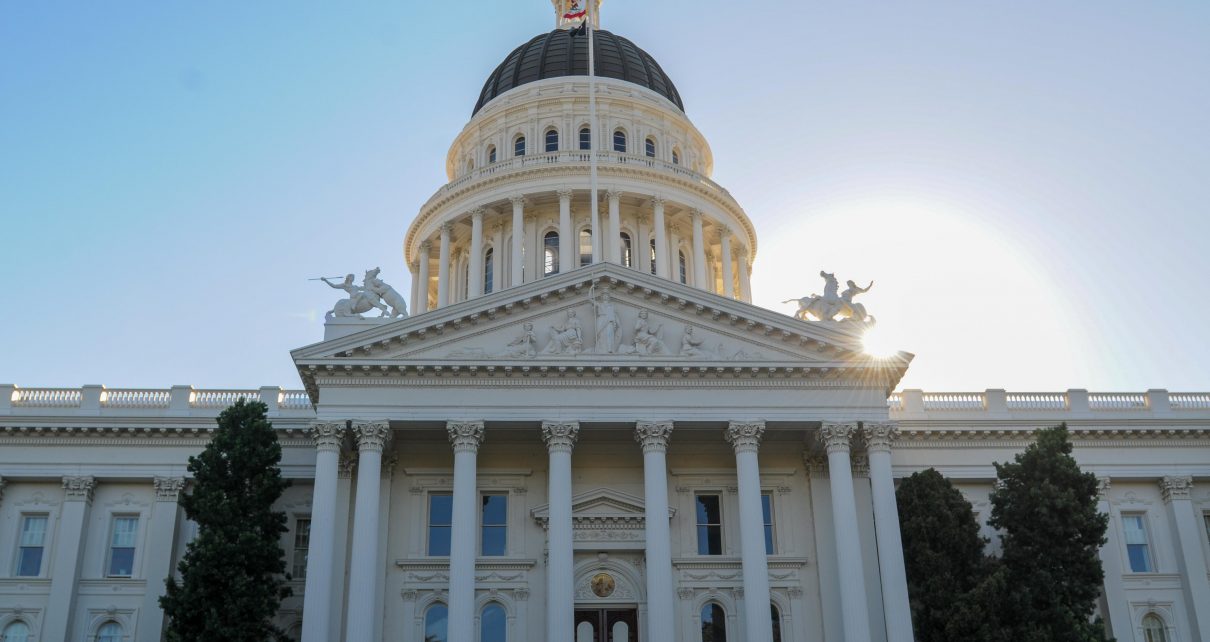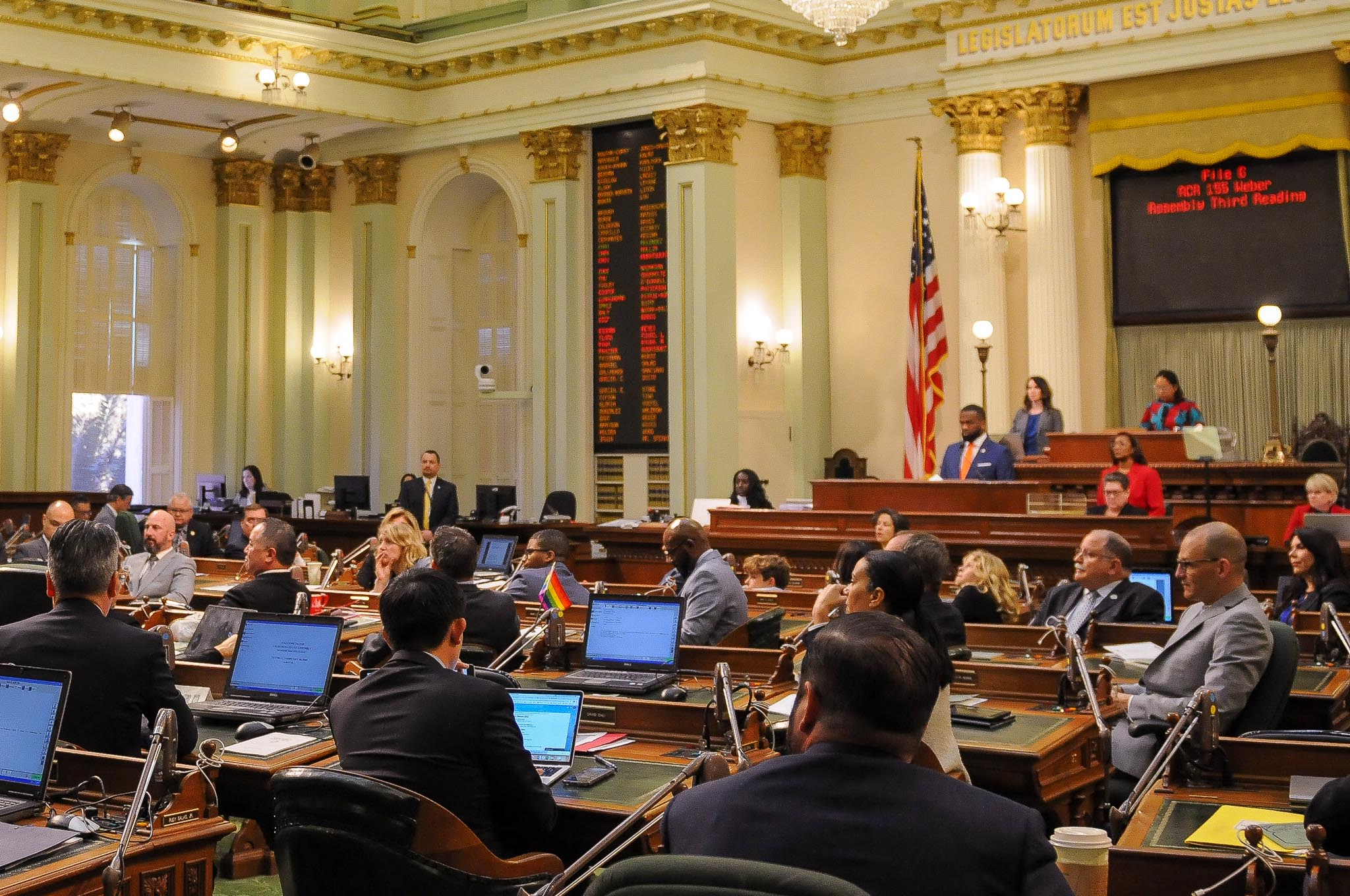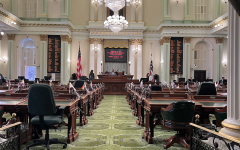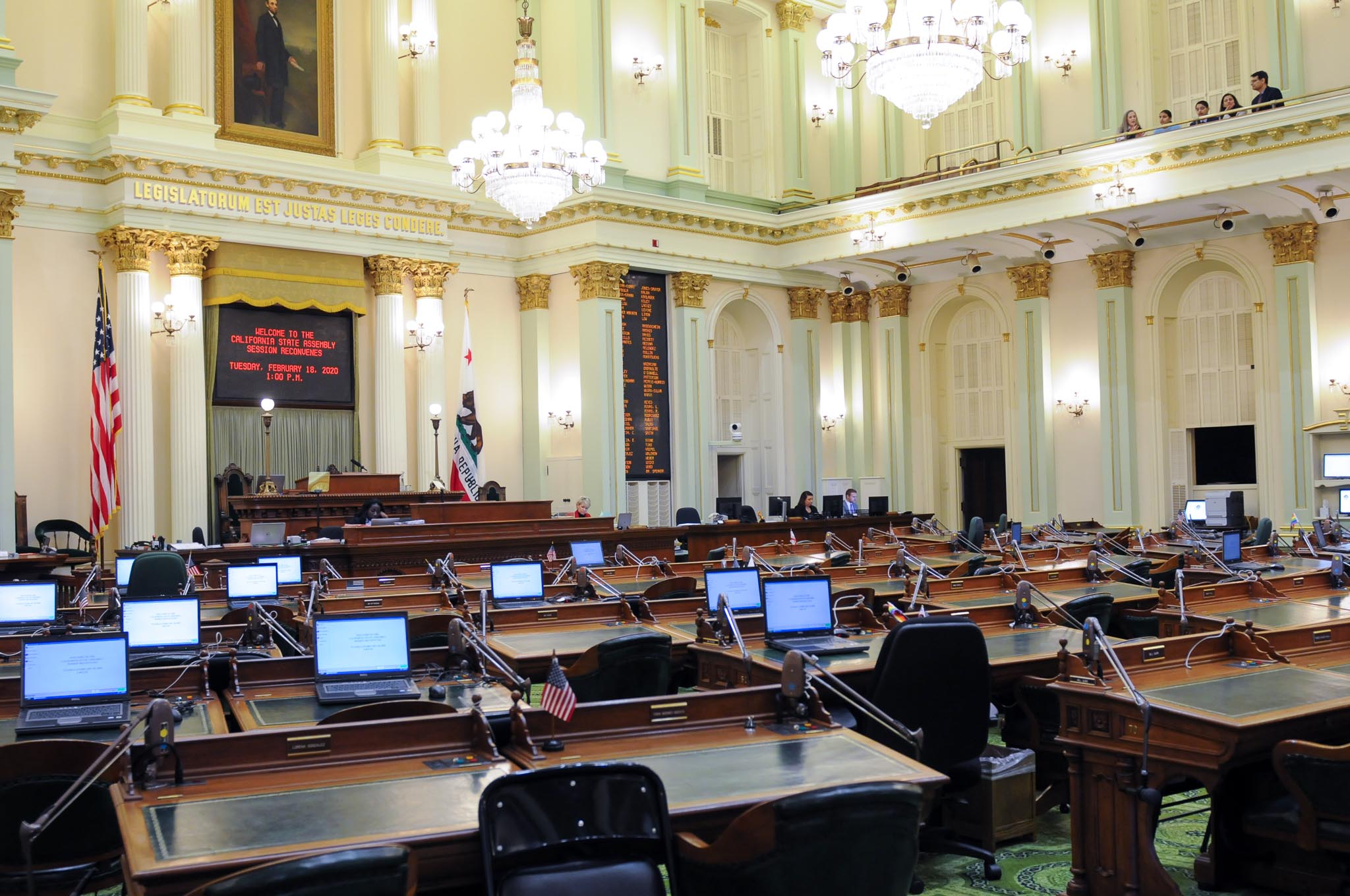
California State Capitol. (Photo: Kevin Sanders for California Globe)
Frequently Asked Questions About California Bills
Are double jointing and contingent enactment the same thing?
By Chris Micheli, January 4, 2024 2:30 am
Do only urgency clause bills take effect immediately? Under Article IV, Section 8(c)(3) of the California Constitution, “statutes calling elections, statutes providing for tax levies or appropriations for the usual current expenses of the State, and urgency statutes shall go into effect immediately upon their enactment.”
What are urgency measures? Urgency statutes are generally those considered necessary for immediate preservation of the public peace, health or safety, and these measures require approval by a two-thirds vote of the Legislature, rather than a majority, pursuant to Article IV, Section 8(d) of the state constitution.
Do both the Assembly and Senate permit their Members to introduce a maximum of 40 bills per session? This was true until the 2017-18 Session when the Assembly changed its rule to allow the introduction of a maximum of 50 bills per session. (See Assembly Rule 49(a).) The Senate retains a cap of 40 bills per session. Members in either house can request a waiver from the Rules Committee to introduce more than the maximum number of bills.
Is a bill keyed as a “tax levy” a tax increase bill? For California bills, a “tax levy” is any bill that imposes, repeals, or materially alters a state tax. The Legislative Counsel indicates in the Title and Digest of the bill whether the bill is a tax levy.
Do all bills that contain an appropriation require a super majority vote for passage? This is the general rule, except for education finance bills, budget-related bills, and special fund appropriations bills which only require a majority vote for passage.
Can all 2-year bills be considered at any time in the second year of the session? Under the California Constitution, any 2-year bill, even those that contain an urgency clause or are deemed to be a tax levy, must pass their house of origin by January 31 of the second year. However, this rule does not apply to constitutional amendments.
Like in Congress, is the sponsor of the bill the legislator who introduces the bill? In Congress and the vast majority of states, the bill author is called the sponsor of the bill. But in California, the sponsor is the Member of the Legislature, private individual, or group who develops a measure and advocates its passage. The author of the bill is the Member of the Legislature who introduces the measure.
Are bond measures approved only by the Legislature? A bill authorizing the sale of state general obligation bonds to finance specified projects or activities is a bond measure. Subsequent to enactment, a general obligation bond bill must be approved by the voters.
Are double jointing and contingent enactment the same thing? Contingent enactment means there is a section in a bill indicating that it is to become operative only upon the enactment of another measure. Double jointing amendments are amendments to a bill providing that the amended bill does not override the provisions of another bill where both bills propose to amend the same section of law.
Does a bill’s Legislative Counsel Digest analyze a bill’s provisions? Prepared by the Legislative Counsel, the Digest summarizes the effect of a proposed bill on current law. It appears on the first page of the printed bill. It does not provide an analysis of the proposed law. That is done by policy committee staff in their bill analyses.
Are engrossing and enrolling of bills the same thing? When a bill is amended, the printed form of the bill is proofread by staff to assure that the amendments are inserted properly. After being proofread, the bill is “correctly engrossed” and is deemed to be in proper form. Whenever a bill passes both houses of the Legislature, it is ordered enrolled. In enrollment, the bill is again proofread for accuracy and then delivered to the Governor.
Do only bills impose state mandates? State legislative enactments or administrative regulations can mandate a new program or higher level of service on the part of a local government, the costs of which are required by the California Constitution to be reimbursed to those local governments.
Do local governments determine whether a bill creates a state mandate? A bill is designated by the Legislative Counsel to be a State-Mandated Local Program, which requires the State to reimburse to local governments the cost of activities required by legislative and executive acts.
Does a bill containing an urgency clause require only one vote for passage? A vote on the urgency clause, requiring a two-thirds vote in each house, must precede a vote on the bill pursuant to Joint Rule 27. As a result, there are actually two votes taken on the floor on a bill containing an urgency clause, the first on the urgency clause and the second on the bill itself.
Do all measures reported out of committee get placed on the second reading file? In the Assembly, pursuant to Assembly Rule 66, all bills reported out of committee must be placed on the second reading file for the next legislative day. But this rule does not apply to joint or concurrent resolutions. Instead, it applies to bills and constitutional amendments.
Can budget appropriations bills be authored by any Member? Bills providing for appropriations related to the Budget Bill can only be authored by the Senate Budget & Fiscal Review Committee or the Assembly Budget Committee pursuant to Joint Rule 54. However, this provision may be suspended by approval of the Rules Committee.
Do senators need a second to move a bill, just like in the Assembly? In the Senate, to vote on a bill only requires an initial motion; however, in the Assembly, a motion and a second are required before a bill can be voted on by the committee members.
Can a Member author a bill during a session that would have substantially the same effect as a bill that he or she introduced during that session? No, is the general rule, unless the Member receives approval by the Rules Committee. Nonetheless, pursuant to Joint Rule 54, this restriction does not apply in cases where the previously introduced bill was vetoed by the Governor or its provisions were “chaptered out” by a later chaptered bill.
Why does an urgency bill include a brief statement following the urgency clause? Because California’s Constitution in Article IV, Section 8(d) provides, in part, the following: “Urgency statutes are those necessary for immediate preservation of the public peace, health, or safety. A statement of facts constituting the necessity shall be set forth in one section of the bill.”
Why does a bill include only related provisions, rather than a hodgepodge of unrelated provisions like a bill in Congress? Because Article IV, Section 9 provides, in part, the following: “A statute shall embrace but one subject, which shall be expressed in its title. If a statute embraces a subject not expressed in its title, only the part not expressed is void.”
Why does a bill include the entire code section being amended, even if just a single word is changed? Because Article IV, Section 9 provides, in part, the following: “A section of a statute may not be amended unless the section is re-enacted as amended.”
Why does a bill include a section that explains it is a special statute and not a general statute? Because Article IV, Section 16 provides: “All laws of a general nature have uniform operation. A local or special statute is invalid in any case if a general statute can be made applicable.” Therefore, if a special statute is required for certain, unique reasons, the bill states that it is a “special statute.”
- Relations of LLC Members and Managers - February 24, 2026
- This Is an Interesting Limit on Rulemaking Power - February 23, 2026
- Miscellaneous Civil Action Proceedings - February 23, 2026




